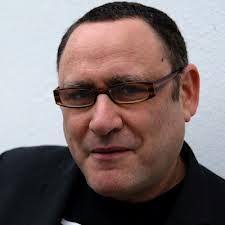by Gilad Atzmon
Haaretz reported today that a couple of weeks ago, New York City Councilman David G. Greenfield introduced a bill that would bar the New York City Department of Health and Mental Hygiene from requiring informed consent for metzitzah b’peh.
Metzitzah b’peh (blood sucking) is a Jewish blood ritual where a circumciser (mohel), “sucks out blood from a baby’s penis after circumcision.”
The N.Y. health department has linked several infant deaths to Metzitzah b’peh. Needless to say that the American health authorities’ concerns are more than reasonable. However, not many people are familiar with the history of the political and medical discussion over that particular Jewish blood ritual.
In Medicine and The German Jews, John M. Ephron elaborates on the evolvement of the opposition to Jewish blood rituals in Germany.
“Jewish circumcision was the subject of a wide-ranging debate in nineteenth-century Germany.Circumcision had long been regarded as the most distinctive and separatist of all Jewish rituals, and the discourse surrounding it went to the heart of the ‘willingness’ of the Jews to fully participate in the ‘act’ of being German.
The ritual was interpreted as a signal of the Jews’ refusal to rid themselves of their differences, imprinting on their own male bodies, as an aboriginal would his tribal markings, an ineradicable expression of national identity. “
“Critics of ritual circumcision were particularly hostile to the act of metsitsah. For many Jews, primarily those who had joined the German middle class and had come to share the culture and aesthetic sensibilities of that group, metsitsah appeared to be an atavistic, sexually deviant act.
Part of the traditional circumcision ceremony, the practice of metsitsah was widely condemned throughout the nineteenth century by medical and lay authorities, Jews and Gentiles alike. Charging that the practice promoted the spread of a host of sexual and infectious diseases, the arguments made against the practice were not confined to Western Europe but made their way east as well. “
I guess that as far as the Jews are concerned, the take home message here is plain and simple. When, the ‘Goyim’ start to complain about Jewish blood rituals is when they are willing to admit to themselves that something is distinctively different and wrong with Jewish culture.
Such a transition is indeed a sign of growing resentment towards Jewish culture and politics. In America this transition takes place at a time when the wide public gathers that it is Israel and the Jewish lobby that are relentlessly pushing the west into wars.
George Soros, a liberal Zionist who funds the pro-Israeli lobby group J-Street and the rabid Zionist NGO Human Rights Watch is also funding the so-called American progressive network and many Palestinian NGOs. Mondoweiss, the leading Jewish anti-Zionist outlet banned any discussion to do with Jewish culture or more precisely, the Jewishness of the Jewish State and its Lobby (1)
I am convinced that the wide public is not really concerned with the rituals Jews perform on their new-born male babies. Yet, complaining about Jewish blood rituals should be grasped as a clear expression of growing fatigue with Jewish politics and power. People out there are saying, “Enough is enough.”
I really don’t think that I can save the situation, but I still see a duty to air my concerns. I believe that Jews had better beware and be alarmed. If Jewish history reveals anything, it warns that Jews are clearly getting themselves into trouble once again. If Jewish history teaches us anything, it also predicts that my call will be dismissed by Jews. And this is exactly what the Jewish tragedy is all about.
________________________________
The Wandering Who? A Study Of Jewish Identity Politics, available on Amazon.com & Amazon.co.uk
(1) “From here on out, the Mondoweiss comment section will no longer serve as a forum to pillory Jewish culture and religion as the driving factors in Israeli and US policy.” (http://mondoweiss.net/)
_______________________________

Gilad Atzmon is an Israeli-born British jazz saxophonist, novelist, political activist and writer.
Atzmon’s album Exile was BBC jazz album of the year in 2003. Playing over 100 dates a year,[4] he has been called “surely the hardest-gigging man in British jazz.” His albums, of which he has recorded nine to date, often explore the music of the Middle East and political themes. He has described himself as a “devoted political artist.” He supports the Palestinian right of return and the one-state solution in the Israeli-Palestinian conflict.
His criticisms of Zionism, Jewish identity, and Judaism, as well as his controversial views on The Holocaust and Jewish history have led to allegations of antisemitism from both Zionists and anti-Zionists. A profile in The Guardian in 2009 which described Atzmon as “one of London’s finest saxophonists” stated: “It is Atzmon’s blunt anti-Zionism rather than his music that has given him an international profile, particularly in the Arab world, where his essays are widely read.”
His new book The Wandering Who? is now availble at Amazon.com
ATTENTION READERS
We See The World From All Sides and Want YOU To Be Fully InformedIn fact, intentional disinformation is a disgraceful scourge in media today. So to assuage any possible errant incorrect information posted herein, we strongly encourage you to seek corroboration from other non-VT sources before forming an educated opinion.
About VT - Policies & Disclosures - Comment Policy



